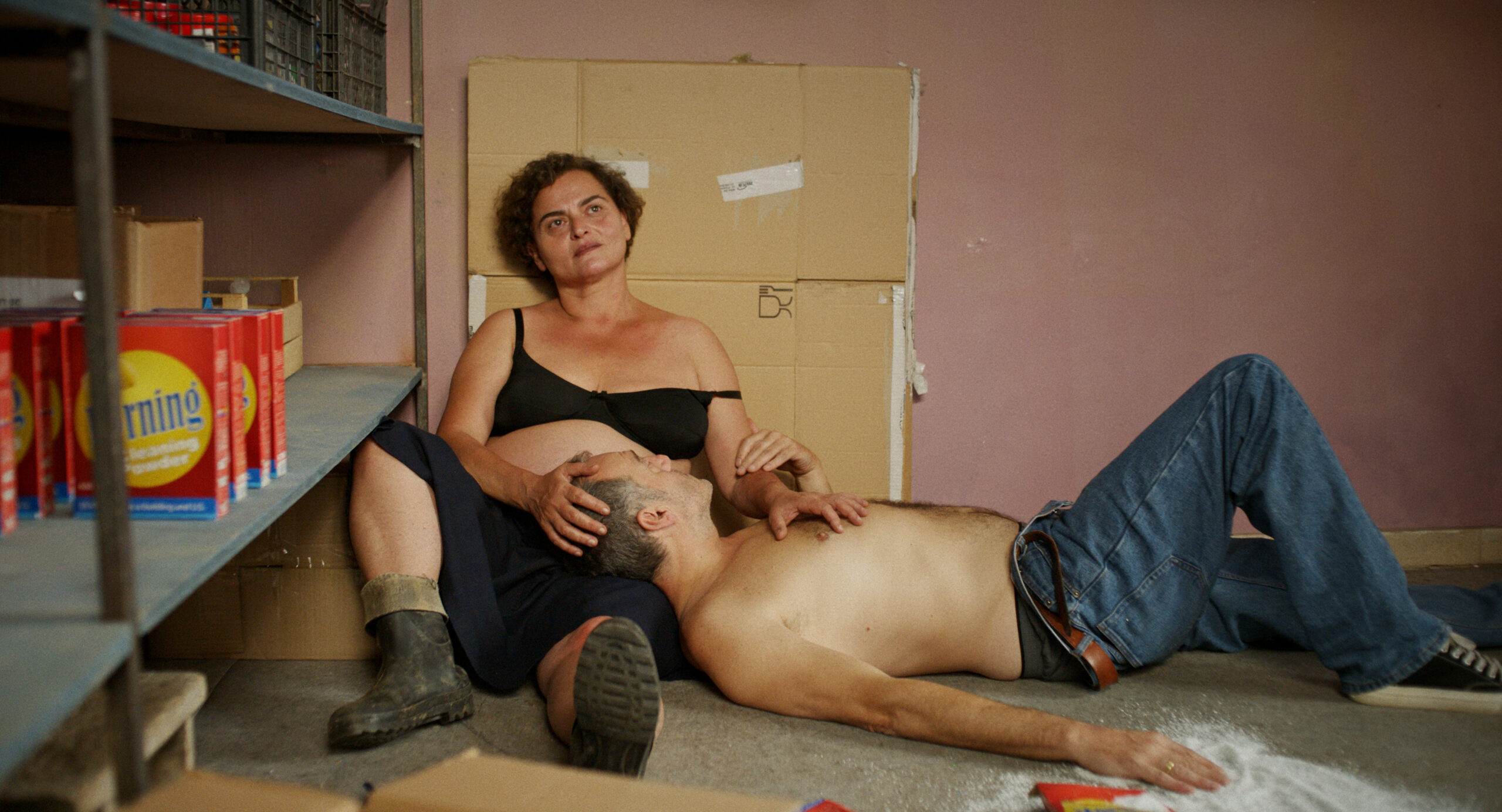Blackbird Blackbird Blackberry
Blackbird Blackbird Blackberry
VERDICT: The deliciously wry, gently unfurling tale of a middle-aged Georgian woman who rejects small-town conformity won the Swiss Film Prize for best film and best director.
The choices of a middle-aged woman unwilling to fit in with the narrow expectations of a small Georgian town are the focus of deliciously wry but reflective comedy-drama Blackbird Blackbird Blackberry, screening in the Horizons section at Karlovy Vary after a world premiere at Cannes Directors’ Fortnight. Director Elene Naveriani again embraces the feminist vein of her previous features And I am Truly a Drop of Sun on Earth (2017) and Wet Sand (2021), bringing us into the complex inner world of a woman who dares to think and live differently.
Etero (Eka Chavleishvili) runs her own business selling household and beauty items, and has long been single, following a daily routine that is predictable and requires little dependence on anyone. But one day unlike others, she slips while picking blackberries in a ravine. The near-death experience brings the existential questions that have been bothering her as menopause approaches into urgent focus, and pushes her to take stock of her life. When product supplier Murman (Teimuraz Chinchinadze) stops by the store that afternoon, she makes a spontaneous pass at him, losing her virginity at age forty-eight and opening the door to love and a whole new relationship to sexuality and her own body.
Naveriani has adapted Tamta Melashvili’s novel of the same name in a calmly deliberate, generous manner that allows the character of Etero a lot of space. This space is literal — the airy, sparsely frequented store she presides over is a room of refuge as well as her means to earn a livelihood — and psychological. After the initial accident, Etero’s story unfolds gradually and ambiguously. Her conflicting emotions, introspections and tentative experiments in romance are untangled with droll humour. Chinchinadze gives an impressive, multi-layered performance that manages to make Etero both enigmatic and grounded in no-nonsense fortitude. Blackbird joins a current wave of strong arthouse cinema from Georgia challenging the status quo of patriarchal intolerance in the Caucasus nation. It is a lot gentler and more understated in its societal critique than a film such as Dea Kulembegashvili’s confronting and stylistically audacious breakout success Beginning (2020). But, having disavowed superficial dramatic fireworks, Naveriani allows deep currents of emotion to accumulate in Blackbird. Add to that a genuinely surprising end twist, and wide festival play is assured.
To avoid scrutiny in a town rife with gossip and neighbours with a keen eye for any indiscretion, Etero and Murman, who is married, keep their trysts secret. Even so, it’s clear that Murman, in his own diffident but attentive way, is smitten, clasping onto what for him is “a love that looks like autumn” — a last chance at passion as he, too, negotiates his feelings around ageing. Sexual moments between the pair are unglamourised but joyful, their fulsome bodies inhabited and filmed with an easygoing frankness that is refreshing in a cinema obsessed with youth. The other women of the town, between their incessant jokes about sex, mock Etero about her looks and pity her uncoupled status in their frequent get-togethers. As much as it gets to Etero, she stays somewhat detached from their barbed insecurity and discomfort at her lack of conformity, feeling no envy for their less than happy marriages.
Blackbird foregoes the narrative arc we might normally expect from a story of late-flowering romance, as Murman proves to be neither an answer to make Etero’s life whole, nor a dissembler that brings humiliation upon her for her unabashed desires. She refers to him as a kind dog among wolves, and glimpses of her backstory (a domineering brother and father kept men away from her when she was younger) position her solitude as treasured autonomy. This independence emerges, renewed, as a preference, rather than a state of loneliness or rejection. Though Etero is passionate, she never allows her identity to be fully subsumed or swept away. Her self-possession is balanced with an outward-looking appreciation of the beauty of nature in her walks and attention to her tasks, and an approach to the world that values experience over ownership. A chanson by French-Armenian crooner Charles Aznavour keeps the mood light but knowing; a bold colour palate of warm terracotas, reds and greens supports the realm of the senses and emanates a pragmatic, earthy physicality. And the rain falls relentlessly, in stormy weather that seems to be washing out old assumptions, in readiness for a new phase of life.
Director: Elene Naveriani
Writers: Elene Naveriani, Nikoloz Mdivani, Tamta Melashvili
Producers: Thomas Reichlin, Britta Rindelaub, Ketie Danelia
Editor: Aurora Franco Vogeli
Cinematography: Agnesh Pakozdi
Cast: Eka Chavleishvili, Teimuraz Chinchinadze
Production Design: Teo Baramidze
Sound Design: Philippe Ciompi
Production companies: Alva Film (Switzerland), Takes Film (Georgia)
Sales: Totem Films
Venue: Karlovy Vary International Film Festival (Horizons)
In Georgian
110 minutes


